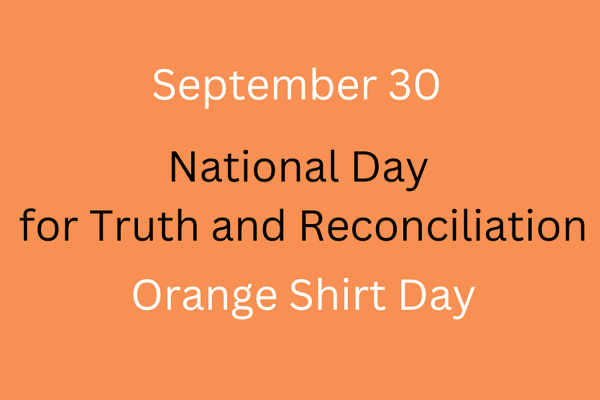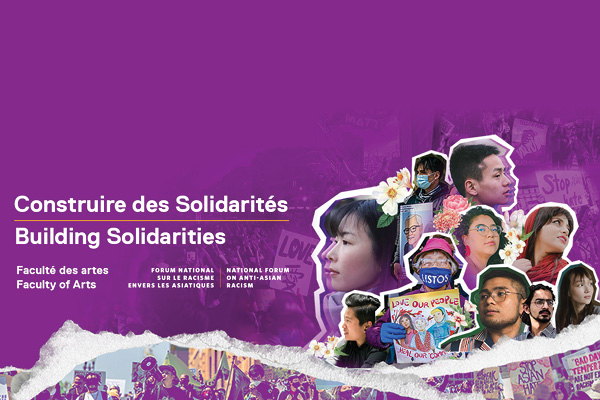In response to Truth and Reconciliation Call to Action 80 the Canadian government has designated September 30, informally known as Orange Shirt Day, a National Day for Truth and Reconciliation. The importance of this day could not be clearer as Canadians grapple with the discoveries of unmarked graves around former residential school sites. A reality known to Indigenous peoples for multiple generations. Orange Shirt Day was started by Phyllis Webstad in 2013. On her first day at the Mission school, she proudly wore a new orange shirt her grandmother bought for her first day. She was stripped of the shirt at the school and never saw it again. Phyllis has said, “The colour orange has always reminded me of that, and how my feelings didn’t matter, how no one cared and how I felt I was worth nothing. All of us little children were crying and no one cared.”
Orange shirts have become a symbol across Canada to signal we know that “Every Child Matters”. To wear an orange shirt on September 30 is to show solidarity with residential school survivors. When ordering an orange shirt, please be sure that you purchase one that supports the Orange Shirt Society or an Indigenous business.
We ask our community to begin or continue the important and lifelong process of right relationship and reciprocity to Indigenous peoples in Canada. When you see orange shirts on September 30, we hope you will be inspired to learn more about the horrific effects of policies of assimilation on Indigenous communities. Residential schools are just one instance of Canada’s long history of such practices.
Canada’s actions must align with the rights of Indigenous peoples in domestic and international law, including the United Nations Declaration on the Rights of Indigenous Peoples (UNDRIP). UNDRIP is the foundation of the 2015 Truth and Reconciliation Commission (TRC) Calls to Action. Calls to action 71-16 concern missing children and burial information.
The National Centre for Truth and Reconciliation (NCTR) and the Indian Residential School History and Dialogue Centre are calling on the federal government to work in collaboration with residential school Survivors and Indigenous governments to establish a national framework for investigation and protection of burial sites, consistent with the rights, laws, jurisdiction and protocols of the affected Nations. Canadians must hold all governments and churches accountable by calling for the implementation of all the recommendations of the TRC.
“Survivors have always been clear that the road to reconciliation must begin with the truth. Canada’s failure to properly investigate and protect the sites where our sisters and brothers were buried means that we still do not have the whole truth. Too many of these children have never been identified by name and have never been located. This has to change. We owe it to these children to do this important work and to do it in our culture through ceremony in a good way.”
Lila Bruyere of the NCTR Survivor’s Circle
Community members and local associations who wish to support work to raise awareness on the intergenerational impacts of residential schools and the importance of “Every Child Matters”, may wish to donate to these organizations:
Orange Shirt Society https://www.orangeshirtday.org/donations.html
Indian Residential School Survivors Society https://www.irsss.ca/donate
The Woodland Cultural Centre (site of the Mohawk Institute Residential School) https://woodlandculturalcentre.ca/donate/
Please consider signing the Open Letter to Japanese Canadians and their Allies in Canada to support Indian Residential School Survivors. The letter was started on July 1, 2021 and endorsed by the NAJC and nine Japanese Canadian organizations and Allies.
The National Association of Japanese Canadians (NAJC) was formed in 1947 to fight for the rights of 22,000 Japanese Canadians who were stripped of their rights and interned during and after the Second World War. The NAJC led talks for Redress, and in 1988, the Canadian government acknowledged and apologized for the injustices. The NAJC strives for equal rights and liberties for all, in particular racialized and Indigenous peoples.



